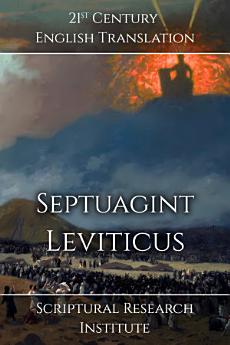Septuagint: Leviticus
Tungkol sa ebook na ito
Since the 1800s, the majority of Biblical scholars have interpreted the books of Leviticus and Numbers as a later addition to the original laws of Moses found in Exodus, with Deuteronomy being a later addition during the Babylonian era. Cosmic Genesis is either considered to be part of Moses' original work or a later addition in the Persian era, depending on the scholar. Leviticus and Numbers contain several amendments to Moses' laws in Exodus, as well as establishing the land rights of the various tribes of Israel within historic Canaan, including the assignment of several cities and their environs to the Levitical Priesthood. The most obvious amendment to Moses' laws, is replacing the sacrifice of the firstborn, with the establishment of the Levitical Priesthood. Exodus 13 includes a requirement that the firstborn Israelites must be slaughtered as a sacrifice to Iaw, however, allowed an animal to be substituted. This law would not have been difficult for a group of nomadic shepherds to follow but would have become progressively more difficult as the Israelites became more urbanized in Canaan.
This seems to have resulted in an increase of child-sacrifice which the prophet Jeremiah spoke out against during his lifetime, estimated at between 650 BC and 570 BC. The practice was officially banned by King Josiah around 630 BC when the Levites 'found' the 'original' Torah of Moses during the refurbishing of Solomon's Temple. As this could not have been Moses' original Torah, as Moses had nothing to do with the Temple of Solomon, it was likely when Leviticus and Numbers were added to the Torah. This is likely when the 'authorized version' of Genesis, Exodus, and Numbers were cobbled together from the conflicting Elohist and Yahwist sources, although some groups may have continued to use the older versions of these books, as the Nazarenes had their own Torah in the 1st-century BC, which appears to have been the old Elohist Torah.










